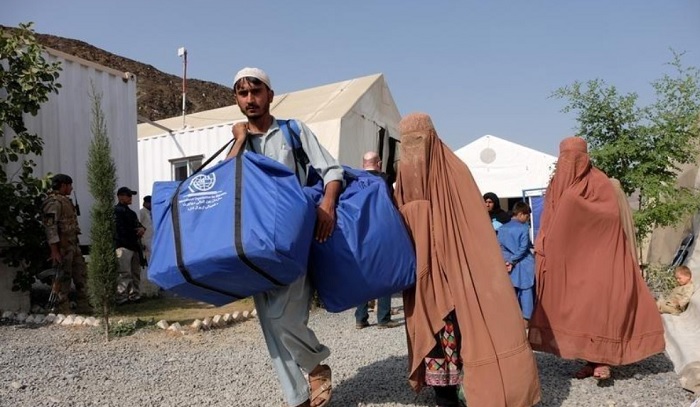Saudi funds $10 million program to help returnees and IDPs

The UN Refugee Agency (UNHCR) and the Ministry of Refugees and Repatriation (MoRR) have launched a $10 million program, funded by Saudi Arabia, to provide essential services to support the sustainable reintegration of returnees, internally displaced people (IDPs) and host communities.
Under the program, UNHCR and the MoRR and its partners will build 37 schools, health clinics and infrastructure projects – including roads and water pipe networks – across Afghanistan in 2020.
“The Government of the Islamic Republic of Afghanistan is firmly committed to ensuring the voluntary repatriation and sustainable reintegration of all displaced Afghans,” said Noor Rahman Akhlaqi, Minister of Refugees and Repatriation.
“The government’s decision to put an end to the protracted displacement of its citizens is steadfast, and we do our best to create conditions conducive internally to achieve this goal. It constitutes one of our highest national priorities”, said Akhlaqi.
The program was launched on 1 June 2020, helping three million people in Afghanistan. It is expected to be complete at the end of May 2021.
Up to 14 projects funded Saudi Arabia – including the construction of schools and health clinics in Bamyan, Kabul, Nangarhar and Kandahar – are currently ongoing in various parts of the country with the potential to benefit 32,100 people in Afghanistan.
The Afghan government and UNHCR have identified 20 priority areas for return and reintegration where returnees and displaced people are living among local communities.
These areas have been selected based on the high number of returnees, assessed needs, and suitability for coordinated efforts by a range of humanitarian and development actors.
Since 2002, more than 5.3 million Afghan refugees have been assisted to return home.
“We are grateful to the Kingdom of Saudi Arabia for this very generous donation for supporting the people of Afghanistan”, says Caroline Van Buren, UNHCR Representative in Afghanistan.
“This donation is critical to UNHCR’s work with the Afghan Government to ensure that refugee returnees have access to the essential services and the facilities they need to rebuild their lives while also supporting the communities as a whole,” she said.
Today, there are some 4.6 million Afghans outside Afghanistan, of whom 2.7 million are registered refugees. Collectively, they represent one of the longest-displaced, longest-dispossessed populations worldwide.
